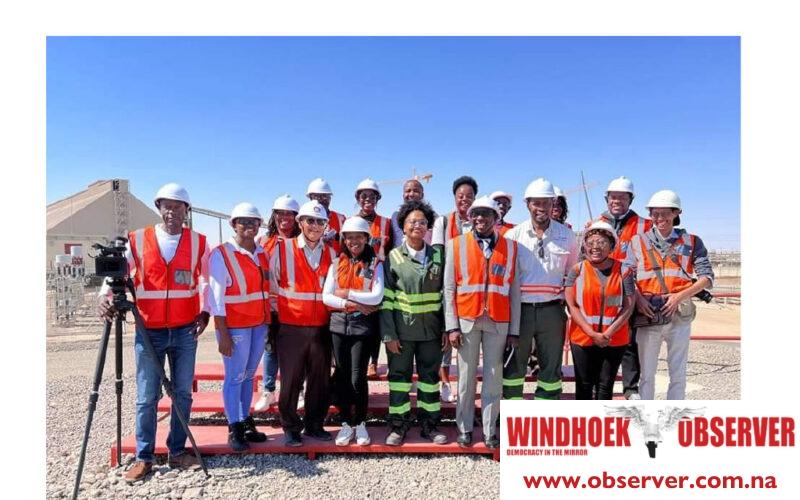Martin Endjala
The governor of the Erongo Region, Neville Andre, has urged the private sector to establish a good relationship with the media in order to disseminate information to the community.
The governor was speaking at the commemoration of World Press Freedom Day on 3 May, hosted by the Swakop Uranium Mine.
“We are reminded of the critical role that free, independent media plays in our society, and that surely is very important in improving correlation and the relationship that we have with media. Press freedom in Namibia continues to receive high statistics and cooperation from the government; hence, Namibia’s media policies have received several recognitions across Africa and the world as one of the best,” said Andre.
The theme for this year’s celebration of the day is “A Press for the Planet: Journalism in the Face of the Environmental Crisis.”
He stated that such a relationship should not only work between the government and the media, but the private sector should also be part of it.
‘’We want to encourage the private sector to strive for a good relationship with the media,’’ he added.
He lauded Swakop Uranium for its efforts in creating good relations with the media while calling on other private sectors to emulate such initiatives.
According to him, journalists are well informed about activities in the region; they can report accurately to the masses, which reduces misleading information and confusion.
The governor reminded the media to always report factually and practice accountability, adding that the media is a breach between the masses, the public, and the private sector.
Swakopmund Uranium’s chief executive officer, Qiu Bin, said world press freedom highlights the significant work that is key to the mining industry, stating the importance of media in breaching relations between the masses and the sector.
He said the media remains an important stakeholder in the sector, tasked with informing the public on sector activities.
“Such relations enhance the mine’s operations via the accountability of factual reports that are published in public, outlining its various activities, thereby educating the masses,” he said.
Meanwhile, in a statement issued on 2 May, the Namibia Media Professional Union (NAMPU), acting secretary general, Jemima Beukes, said the union underscores the vital importance of journalism in fostering democracy and transparency.
She said the union reflects on the challenges and opportunities that journalists worldwide face in their pursuit of the truth.
“As Namibia stands on the precipice of an imminent oil and gas boom, it is imperative to closely examine the working conditions of journalists, now more than ever. The absence of a registered trade union leaves journalists vulnerable to the influence of powerful conglomerates with significant financial resources, posing a threat to their independence and integrity,” she stressed.
She emphasized the urgent need for journalists to acquire the necessary skills and knowledge to effectively cover the complexities of the oil and gas sector.
Beukes highlighted that the oil and gas industry is characterised by intricate legal frameworks, technical terminology, and opaque practices, presenting unique challenges for journalists.
To address this gap, NAMPU has called on newsrooms to prioritize the specialization of reporters in the oil and gas sector and invest in specialized training and resources to enhance the quality and depth of their coverage, as well as collaborate with other industry experts and engage in continuous learning for development.
“NAMPU has reaffirmed its commitment to promoting excellence in journalism and advocating for journalists’ rights and professional development,” she stated.
According to Beukes, the union is ready to support journalists in their role as informants and watchdogs for society.




